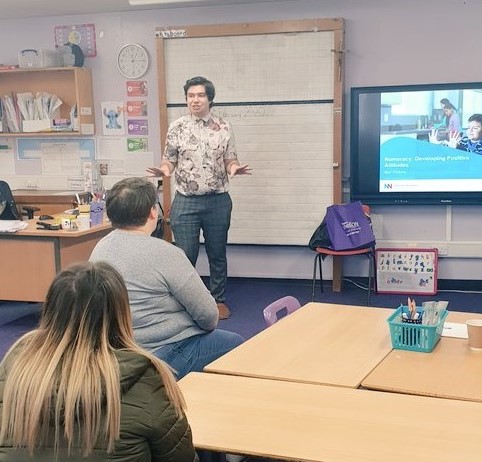Why did you apply to the project and how has it gone?
As a school we had planned to increase parental engagement across the board, and I also develop numeracy in the school, so when this opportunity came up I thought: “Perfect, that hits two of our targets!” We didn’t expect to be picked, so we feel lucky that we were.
We loved taking part in the project, and many of the Family Maths Toolkit resources have totally saved us during lockdown because the home learning materials were good to go, and the families were already supposed to work on them together. Everything else the families had was digital, but there’s a digital divide in terms of equity in our area. A lot of our families don’t have devices, or the ones that do maybe have three or four kids, so it was difficult. Having paper-based resources meant they could be included in the learning.
Did the kids enjoy doing the activities?
They really did – reading the comments from the children in their Family Maths Toolkit scrapbooks showed that. They didn’t often see it as a maths lesson, more as a fun challenge, while learning maths at the same time. They’re different to their other schoolwork and covered all different topics.
They liked that we built in a celebration of success at assembly every week, and that it forced some of their parents to work with them! It wasn’t just that they had to check it, but they had to do it with them. They also like that they learn differently now, so family members’ answers would be the same as theirs, but they would find the answers in a different way and liked the opportunity to show how they do it in school.
How did the staff find it?
It’s always difficult because we’ve got loads of staff, and at the beginning I thought: “Oh this is just going to be something else to add to everyone’s lists of things to do.” But the fact that all the resources were there meant it was just a case of teachers encouraging children to do it, and them picking the lessons – the workload was already done for them. A lot of them felt that they got a better return with feedback and homework, than they did with traditional homework. I don’t know if that was because the children got nice workbooks – it gave them ownership of something, they felt it was something special. The creative elements of the tasks and how open they were was also really popular with the teachers and children.






